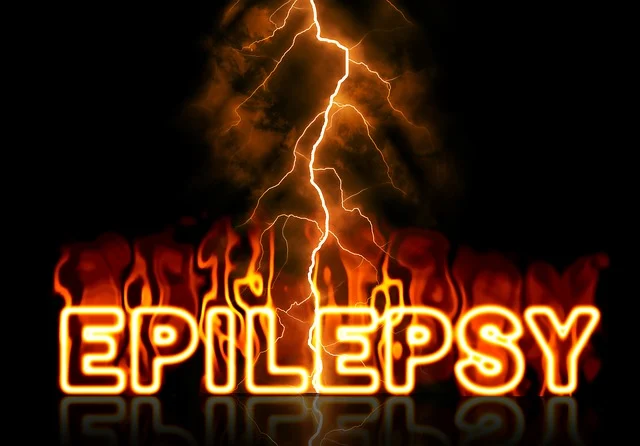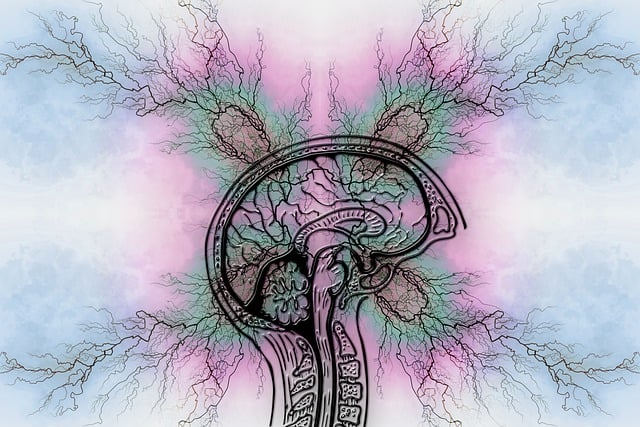Epilepsy is a Non-Communicable Chronic Illness of the Brain: 4 Extraordinary Remedial Endeavors

Epilepsy is a non-communicable chronic illness of the brain which is basically a neurological disorder. It is believed that it is a non communicable illness rather than mental disorder.
Epilepsy is a non-communicable chronic illness of the brain which is chronic disease which disrupts electrical activities inside the brain which results in recurrent seizures which may adversely affect a quality of life of affected individual.
Epilepsy is a non-communicable chronic illness of the brain which may badly affect the people of all ages. It is reported that around 50 million people around the world are victim to this deadly neurological disorder. Out of which approximately 80% victims are resident of third world countries.
It is shown in studies that the risk of a sudden death is 3 times more in epilepsy patients than common populations. However, around 70% cases of epilepsy could live a normal seizure free life with a condition of early detection, diagnosis and proper treatment.
But, unfortunately, majority of patients do not get proper treatment due to some societal stigmas and discriminations attached to epilepsy.
Epilepsy is a Non-Communicable Chronic Illness of the Brain: Understanding its Complexities
Epilepsy is a neurological disorder which is featured as senseless seizures which are also recurrent which cause abrupt and uncontrollable electrical fluctuations in electrical impulses inside the brain results in certain spasm in muscles and temporarily unconsciousness.

Epilepsy is a non-communicable chronic illness of the brain and its causes are multifarious in nature and vary person to person.
However, in some cases the underlying reasons may remain hidden and unknown. Researchers have recognized few possible contributors which may act as triggers in development of epilepsy. Those causes are as follows:
Structural Abnormalities inside the Human Brain
Certain head injuries, congenital diseases and strokes cause malformations and severe damage to human brain which may results in malfunctioning of neurological processing and increase probability of recurrent seizures.
Genetic Dispositions
Certain mutations in genes and other factors about hereditary can be inclined to epilepsy encounters. However, the genetic constructions and processes are so complex that nobody can give authentic verdict that such condition of epilepsy may become visible.
Metabolic Problems
Certain imbalances of brain secreted chemicals and other processes concerning metabolism may be linked to certain genetic and other associated disorders which may result in seizures and epilepsy.
Spinal Infectious
Certain spinal infections, especially, which influence central nervous system may cause seizures and epilepsy. For instance, encephalitis, meningitis and parasitic infections (neurocysticerosis) are prime examples of infections which may lead towards epileptic shocks.
Abnormalities which affect development
As epilepsy is a non-communicable chronic illness of the brain so there are certain neurological disorders and developmental abnormalities conditions like autism and cerebral palsy may triggers associated risks to developmental risks of epilepsy.
Significantly, Epilepsy is a non-communicable chronic illness of the brain. Therefore, it is obvious that it could not transmit from one individual to another through physical touch, personal domestic item sharing and due to any other source of interpersonal contact. It is therefore very clear in response to misconceptions that epilepsy se commonly spread from person to person.
Epilepsy is a Non-Communicable Chronic Illness of the Brain: Influence on Quality of Life
Epilepsy is a non-communicable chronic illness of the brain which has a significant influence on an overall quality of life of individuals confronting from it. Epilepsy is a non-communicable chronic illness of the brain which not only affects physical condition of individual but also spoil emotional, social and psychological situations.
The uncertain nature of epileptic recurrent seizures can be predominantly troublesome, making it testing for individuals with epilepsy to remain connect in their daily activities, perform jobs and even participate in social gatherings and events.
The fear of recurrent and sudden seizures in public places can lead towards depression, social isolation and severe anxiety which further deteriorate the overall condition.
Apart from such physical and emotional problems, epilepsy can affect also the financial conditions significantly. The overheads linked with medical treatment of epilepsy, hospitalizations and the misplaced output can be considerable. Principally, in low-income and poor segment of social classes the access to proper healthcare facilities may obsolete due to lack of resources.
Additionally, the attached stigma, discriminations and misconceptions adjoining epilepsy make the situation even more complex and challenging for those who are actually facing it.
Social misconceptions like believes that epilepsy is a symbol of mental sickness or demonic control can lead towards poor discriminations, societal segregation and a lack of comprehension and support.
Epilepsy is a Non-Communicable Chronic Illness of the Brain: Need Addressers
Epilepsy is a chronic non-communicable illness of the brain which heavily rely on the fact that people could understand and recognize the social, physical behavioral, financial and emotional impacts on affected individuals and their unique basic needs.
Therefore, there is a dire need of affective, objective and focused approached are required in order to ensure the timely diagnosis and treatment, spreading social and community awareness on epilepsy in order to improve quality of life and to fight against certain stigmas and discriminations.
Recognizing the significant impact of epilepsy on individuals and communities, it is crucial to address the unique needs of those living with this chronic neurological condition. A multifaceted approach that combines medical treatment, comprehensive support services, and targeted public awareness efforts is essential for improving the quality of life and addressing the broader societal implications of epilepsy.

There are some strategies to counter anti epileptic stigmas, needs and requirements:
Medical Treatment and Management Initiatives
The main treatment for epilepsy involves the exploitation of anti-seizure medicines (also known as anti-epileptic drugs or AEDs) to manage and administer the sudden reappearance of seizures.
These medicines help in managing and stabilizing the electrical impulses which ultimately control and curb episodes of severe seizures.
The medications solely base upon individual need, requirements and stage of epilepsy. If the medicines do not properly work then other options may be used in order to control the situations. Those options are as follows:
Surgical Intervention
There are certain surgical actions that engage the exclusion or detachment of the brain area which are considered responsible for the seizures.
Vagus Nerve Stimulation
The exploitation of an fixed device to transport electrical impulses to the vagus nerves which can help in reducing frequency of seizures.
Ketogenic Diet
A keto diet is a diet which is high in fats, low in carbohydrates that have been revealed to be useful in some individuals with drug-resistant epilepsy.
Broad Supportive Care
Further than medical management, individuals with epilepsy need a broader range of supportive services to tackle the variety of challenges they face. Such as:
Access to Specialized Neurological Care
There is a need to ensure that people have direct access to epilepsy specialists, neurologists and multidisciplinary teams who are well trained and capable to provide a timely personalized treatment and personal care.
Psycho-social Support
It is really vital to effectively address the social, emotional and psychological requirements of those who are living with epilepsy, including counseling, support groups, and mental health services.
Educational and Vocational Support
It is really healthy for a society to ensure certain effective educational and employment opportunities, provide accommodations to sufferers and workplace help as required.
Safety and Independence
It is also important to devise certain plans to ensure safety, security and independence of people with epilepsy like as driving assessments, home safety evaluations, and assistive technologies.
Social Awareness and Advocacy
In order to properly combat the stigma, prejudice and misconceptions covering epilepsy is vital for creating a more comprehensive and helping environment for those who are living with the condition of epilepsy. Ongoing public awareness campaigns, educational initiatives, and advocacy hard work can play a vital role in:
Dispelling Myths and Misconceptions
Provide ample, effective and timely information about the epilepsy, its nature, causes and cure. In this way awareness could be enhanced and the response towards epilepsy may be improved.
Promoting Understanding and Empathy
The promotion of broad understanding and comprehension about epilepsy can create a culture of empathy, care and support for marginalized segments of society.
Advocacy for Certain Policy Changes
There is a dire need to raise voice and advocate and embark on importance of certain policy changes in support of the rights of under privileged and suffering individual who are facing troubles due to sudden epileptic spells. Such policies must ensure healthcare and treatment assistance to epilepsy patients.
Conclusions
Epilepsy is a chronic brain disease that is not contagious and it can be relieved through the therapy. The one who has the disease is not infectious and in no case is the disease transmitted from one person to another through interpersonal activities.
Epilepsy is a non-communicable chronic illness of the brain which is caused by a number of factors and can be divided into several categories. The causes include the formation of the brain, genetic disorders, metabolism disorders, and infections. Although the specific primary causes will be distinct from person to person, the effect of epilepsy on a person’s quality of life can be immense with it affecting their physical, emotional, and social well-being to a great extent.
The management of epileptic individuals becomes a lot more complicated as it involves not only the delivery of quality medical treatment, but also the provision of essential and customized support to the affected people as well as targeted awareness activities for the broader public on issues that concern epilepsy.
Thus, dispelling the stigmas and misunderstandings, that has been the trademarks of this chronic neurological condition and the creation of a society that is more inclusive and sympathetic, thereby giving more confidence to the epilepsy sufferers to reach their maximum potential.
FAQs
What is epilepsy?
Epilepsy is a non-communicable chronic illness of the brain which is basically a neurological disorder.
How epilepsy triggers?
Epilepsy is a non-communicable chronic illness of the brain which is chronic disease which disrupts electrical activities inside the brain which results in recurrent seizures which may adversely affect a quality of life of affected individual.
What are remedial actions for avoiding epilepsy?
Early detection, diagnosis and treatment.


